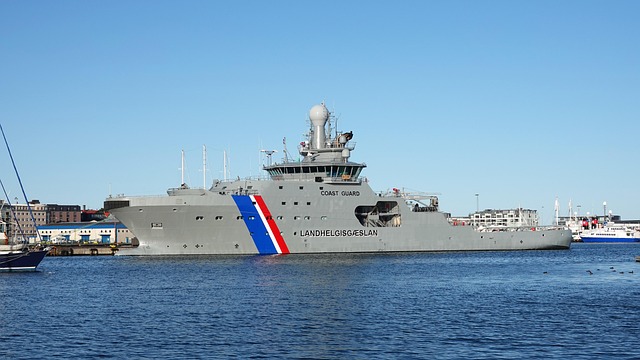Unforeseen diplomatic crises, stemming from geopolitical tensions or cultural misunderstandings, pose significant risks to diplomats' safety globally. Embassies and consulates require robust crisis management strategies to protect personnel and missions. Strategic crisis management involves proactive planning, rapid response, flexible tactics, emergency preparedness, scenario-based training, risk assessment, and strong communication networks. Personal Security Measures (PSM) include advanced communication devices, surveillance, self-defense training, crisis management skills, and well-crafted emergency plans. Comprehensive training programs equip diplomats to assess risks, make quick decisions, and protect themselves in diverse security scenarios. Pre-crisis planning, local relationship building, and understanding community sentiments are critical for navigating high-risk environments, ensuring the personal security of diplomats worldwide.
Unforeseen diplomatic crises pose significant challenges to global security, demanding agile strategic crisis management. As international relations become increasingly complex, effective navigation through these crises is crucial for maintaining stability and protecting diplomatic personnel. This article explores comprehensive strategies, focusing on personal security measures for diplomats as a foundational element. We delve into building resilience, preparedness, and successful case studies, offering insights into managing unforeseen diplomatic security challenges effectively. Key topics include identifying vulnerabilities, rapid response plans, and the vital role of personal security in mitigating risks in high-risk environments.
Unforeseen Diplomatic Crises: A Complex Landscape
Unforeseen diplomatic crises can emerge from a labyrinthine web of global events, posing significant challenges to personal security for diplomats. In today’s interconnected world, what may start as a localized political strain or cultural misunderstanding can swiftly escalate into an international incident. These crises often require swift and strategic crisis management to mitigate risks and protect diplomatic personnel.
Diplomats, embedded in bustling embassies and consulates, are at the forefront of these dynamic situations. They must navigate complex geopolitical landscapes, where decisions made during such unforeseen challenges can have far-reaching implications. Effective crisis management involves a delicate balance between staying proactive, adapting to evolving circumstances, and ensuring the safety and security of diplomatic missions and their personnel.
The Role of Strategic Crisis Management
In the ever-evolving landscape of international relations, strategic crisis management has emerged as a vital component in addressing unforeseen diplomatic security challenges. As diplomacy becomes more complex and global interactions increasingly dynamic, effective crisis management strategies are indispensable for safeguarding personal security for diplomats. This proactive approach involves meticulous planning, rapid response mechanisms, and flexible tactics tailored to mitigate risks and navigate potential crises successfully.
By implementing strategic crisis management, diplomatic missions can enhance their ability to anticipate, assess, and counter threats effectively. It encompasses not just emergency preparedness but also scenario-based training, risk assessment protocols, and robust communication networks. These measures ensure that diplomats are equipped to handle a range of unforeseen circumstances, from political unrest to security breaches, thereby fostering a culture of resilience and enabling swift resolution of issues related to personal security for diplomats.
Personal Security Measures for Diplomats: A Comprehensive Approach
In the high-stakes world of diplomacy, ensuring the safety and well-being of ambassadors and other diplomats is paramount. Personal Security Measures (PSM) for diplomats play a pivotal role in mitigating risks associated with their unique roles. A comprehensive PSM strategy encompasses a multi-layered approach that includes physical protection, intelligence gathering, risk assessment, emergency preparedness, and close collaboration with local law enforcement and security agencies.
Implementing robust communication protocols, advanced surveillance technology, and discreet personal safety devices empowers diplomats to navigate potentially hostile environments with enhanced awareness. Regular training in self-defense, crisis management, and cultural sensitivity equips them to handle unexpected situations effectively. Moreover, establishing robust emergency response plans and evacuation procedures ensures that rapid, coordinated actions can be taken should the need arise.
Building Resilience and Preparedness
In an unpredictable global landscape, enhancing resilience and preparedness is paramount for diplomats facing unforeseen crises.
Investing in comprehensive training programs tailored to diverse security scenarios equips diplomatic personnel with the skills to assess risks, make quick decisions, and protect themselves effectively. This includes simulations that replicate high-stress situations, teaching them to remain calm under pressure and adapt strategies on the fly. Moreover, fostering strong networks among diplomats facilitates information sharing and coordinated responses, enhancing overall personal security for diplomats navigating complex environments.
Case Studies: Successful Navigations in High-Risk Environments
Diplomats often find themselves navigating high-risk environments, requiring agile and strategic crisis management. Case studies offer valuable insights into successful navigations in such scenarios. For instance, during political unrest in a foreign capital, diplomats swiftly established contingency plans, including secure evacuation routes and backup communication channels. This proactive approach ensured the safe extraction of personnel, showcasing the importance of pre-crisis planning for personal security for diplomats.
Another example involves a diplomatic mission in a region plagued by violent protests. By fostering strong local relationships and staying apprised of community sentiments, the diplomat successfully mediated a peaceful resolution, averting potential crises. This strategy highlights the power of cultural sensitivity and local knowledge in crisis management, further emphasizing the need for adaptable strategies tailored to specific high-risk environments.
Diplomatic security faces an ever-evolving landscape of unforeseen crises, necessitating a robust strategic crisis management approach. By integrating comprehensive personal security measures and building resilience, diplomatic missions can better navigate high-risk environments. The article has explored these strategies, from understanding complex crisis scenarios to implementing preparedness programs. Case studies have demonstrated successful navigations, highlighting the importance of proactive measures in safeguarding diplomats and ensuring effective crisis response. Ultimately, prioritizing personal security for diplomats is paramount for navigating unforeseen challenges with confidence and resilience.
